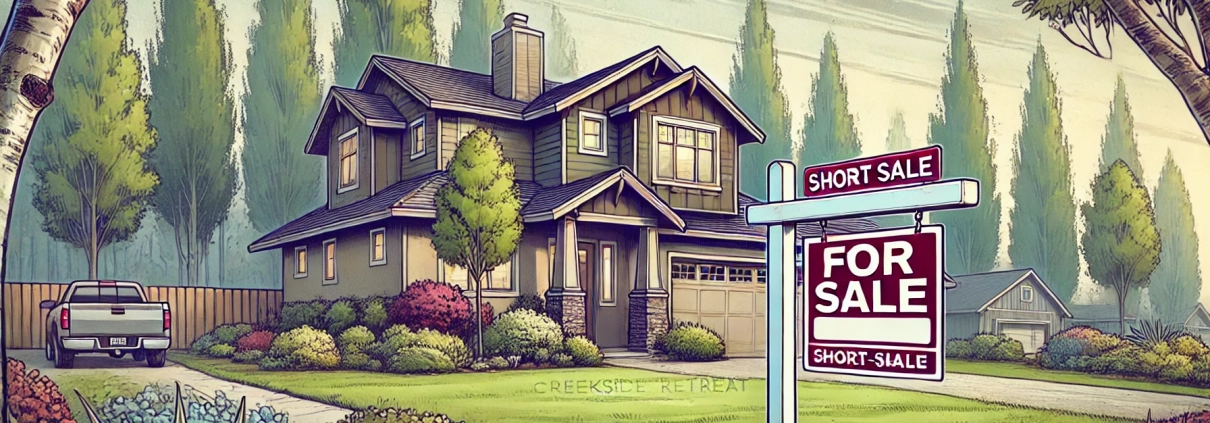Short Sale
The sale of the property for less than the outstanding debt balance owed to all lienholders (typically senior and mezzanine debt providers). The property will fall into foreclosure if all parties do not reach a consensus agreement to sell.
Putting ‘Short Sale’ in Context
Background
John Thompson, a private individual and owner of a single-family home named Creekside Retreat in Boise, Idaho, is facing financial hardship due to unexpected medical expenses and a loss of income. His mortgage balance is $400,000, but the current market value of the home has declined to $350,000. With no other feasible options to address his financial situation, John is considering a short sale to avoid foreclosure.
The Scenario
John’s lender, Idaho First Bank, holds a senior mortgage on the property, and a second lien for a home equity loan is held by a local credit union. For the short sale to proceed, both lienholders must agree to accept less than the amounts they are owed to allow the property to be sold for its current market value.
John lists Creekside Retreat at $350,000 with the help of a local real estate agent. After two months, he receives an offer for $345,000. This offer is contingent upon approval from both lienholders.
The Agreement
Idaho First Bank agrees to accept $315,000 as a payoff for the senior mortgage, while the local credit union agrees to accept $10,000 for the second lien, leaving the remaining $20,000 unpaid. Since both lienholders agree, the short sale proceeds.
Outcome
By completing the short sale, John avoids the severe credit implications of a foreclosure and the prolonged legal process. While the sale does not satisfy all the debt owed, it mitigates greater financial and emotional consequences for John.
Calculation of Lender Recoveries
- Total Sale Price: $345,000
- Amount to Senior Lienholder: $315,000
- Amount to Junior Lienholder: $10,000
- Total Lienholder Recovery: $325,000
- Remaining Debt Unpaid: $400,000 – $325,000 = $75,000
This hypothetical case illustrates the practical application of a short sale as a mechanism to manage financial distress for a homeowner, while balancing the interests of lienholders to avoid foreclosure.
Frequently Asked Questions about Short Sales
What is a short sale in real estate?
A short sale is the sale of a property for less than the outstanding debt balance owed to all lienholders. It requires agreement from all lienholders to proceed; otherwise, the property may fall into foreclosure.
Why would a homeowner pursue a short sale?
Homeowners consider short sales to avoid foreclosure when the property’s market value drops below the mortgage balance and the homeowner cannot meet their financial obligations.
What parties must approve a short sale?
All lienholders—including senior and mezzanine debt holders—must agree to accept less than what they are owed for the short sale to move forward.
What was the short sale outcome in the Creekside Retreat example?
The property sold for $345,000.
Senior lienholder (Idaho First Bank): accepted $315,000
Junior lienholder (credit union): accepted $10,000
Unpaid debt: $75,000
The sale allowed the owner to avoid foreclosure.
How does a short sale affect a homeowner’s credit?
While a short sale may negatively impact credit, it typically has less severe consequences than foreclosure and avoids prolonged legal proceedings.
What happens to the unpaid debt in a short sale?
In some cases, the remaining debt is forgiven, but this depends on the agreement with the lienholders. In other cases, the borrower may still be liable for the unpaid amount.
Where can I download the full CRE Glossary?
You can download the complete CRE Glossary in an eBook (PDF) format by clicking the link provided in the related content section.
Click here to get this CRE Glossary in an eBook (PDF) format.

